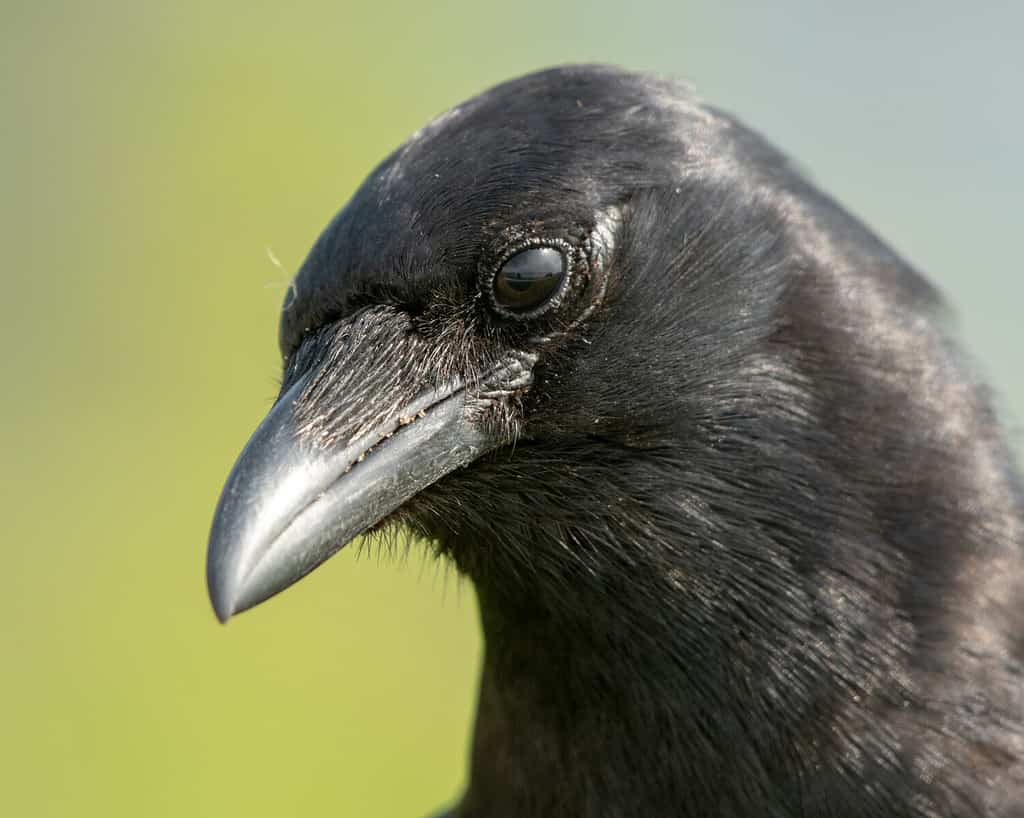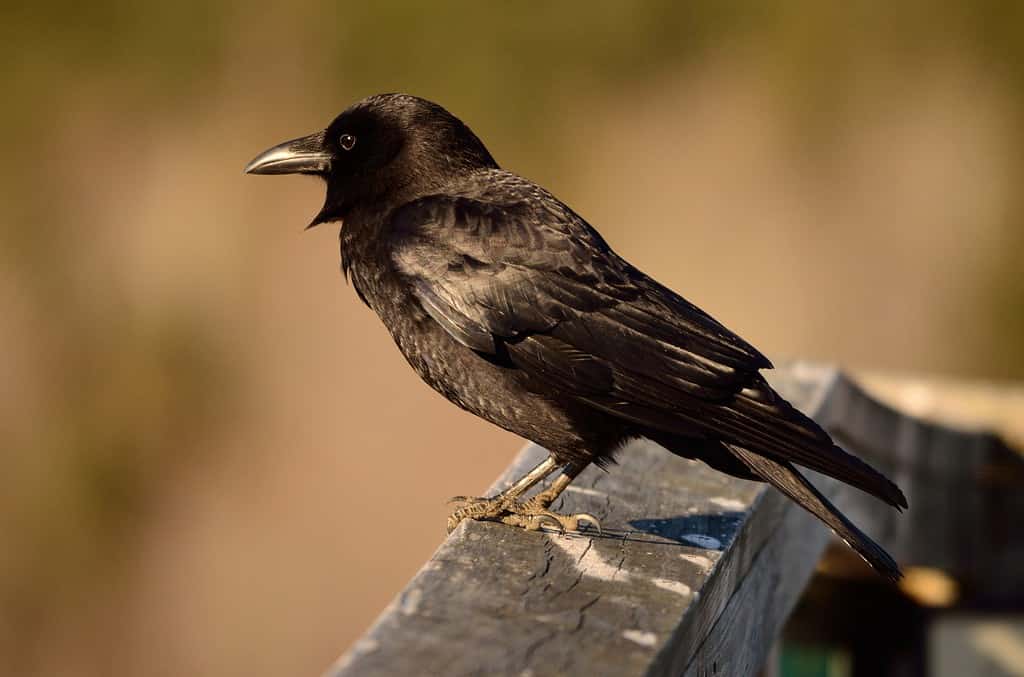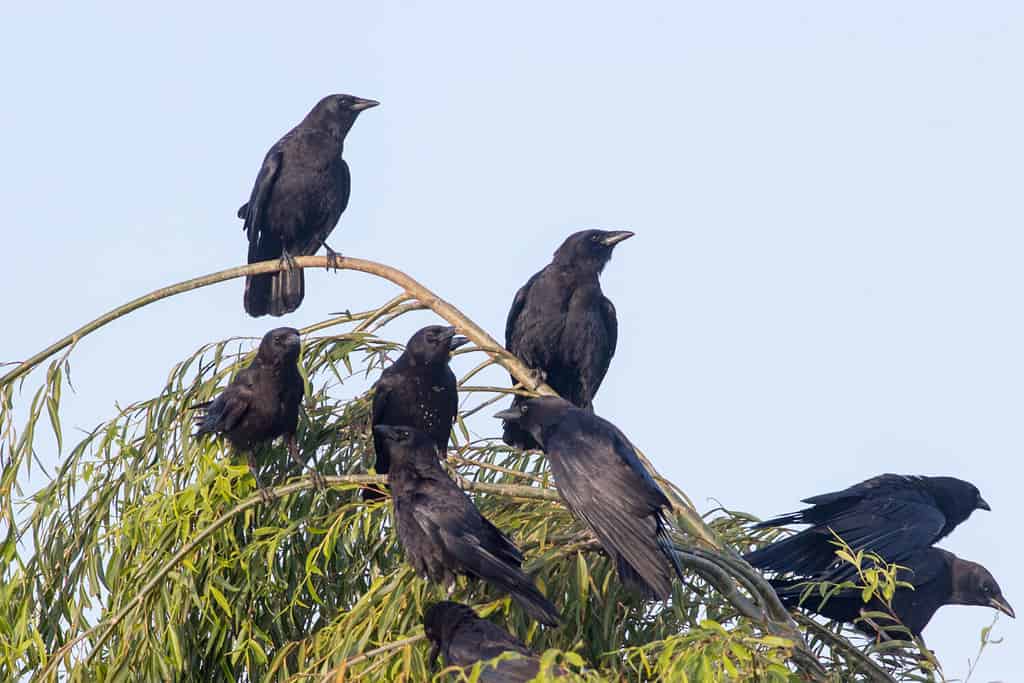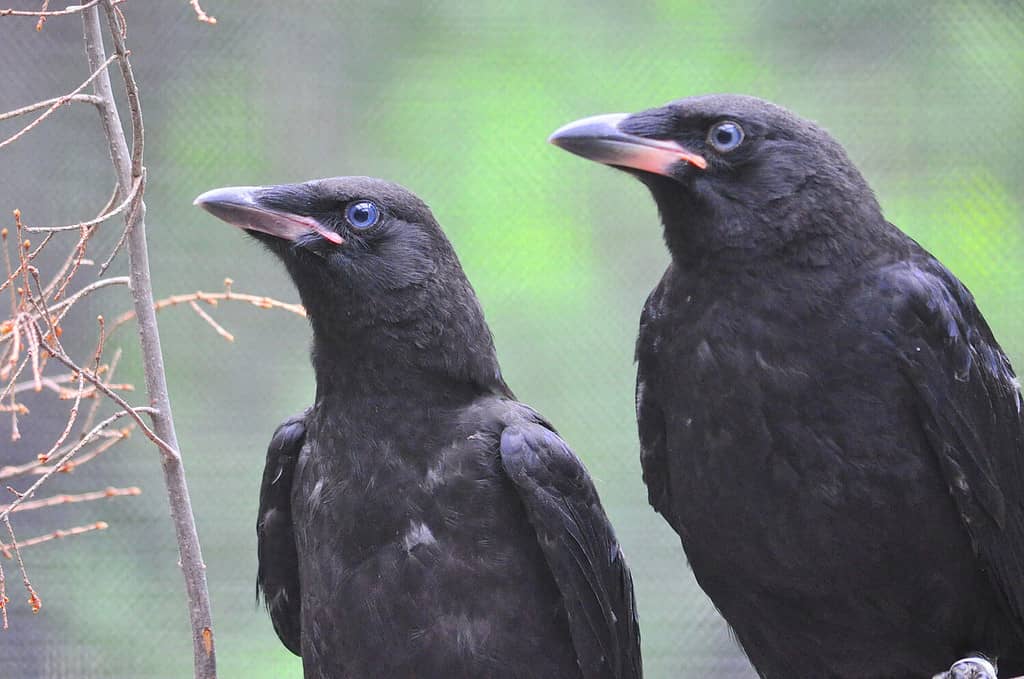The term “crow” refers to a variety of different species in the genus Corvus. Some of the most common birds that fall into this category include the fish crow (Corvus ossifragus), the American crow (Corvus brachyrhynchos), and the carrion crow (Corvus corone). No matter what species you may be most familiar with, you may have heard the crow’s loud caw. This unmistakable caw-caw sound is an autumn essential, but what does it mean? Furthermore, why do crows caw so loudly?
Below, learn why crows caw so loudly. Plus, learn about the 7 most common calls and what they mean.
Why Do Crows Caw So Loudly?
One of the most important things to know is that not every single caw from a crow will be as loud as others. If only one or two crows are together communicating on a social level, their caws may be softer and quieter.
When crows caw loudly, it is often as a way to defend themselves. Despite being fairly large birds, crows have a variety of predators, from owls to hawks. However, while a predator may be able to target and successfully hunt a single lone crow, it becomes exponentially more difficult when a flock of crows — known as a murder — is on the scene.
As a result, scientists believe that the reason crows caw so loudly is directly related to survival. If a murder featuring only three crows caws loud enough, it can often sound like even more birds are present. This helps deter predators, as they will be less willing to attempt to secure a meal among a flock.

Crows are highly intelligent birds that use sound to communicate with other crows and animals.
©Courtenay Harding/Shutterstock.com
7 Most Common Crow Calls and Their Meanings
With the question of why crows caw so loudly answered, learn about 7 of the most common calls you may hear from crows, as well as what these calls mean.

Crows make several different sounds, with each conveying a different message.
©jpetersen/Shutterstock.com
1. Alarm Calls
Crows are a highly social species. Many times, you’ll see them flocking together in large, loud groups. However, while it may seem like their cawing doesn’t have a purpose, because of their social structures, each call has a purpose.
One of the more common calls you may hear from a murder of crows in the wild is an alarm call. This specific sound helps to alert other nearby crows that a predator, like a hawk or owl, is present.
2. Defensive Calls
The defensive call will emerge after the alarm call. This sharp sound does more than alert crows that a predator is nearby; it also helps to let other crows know that the predator isn’t leaving. This call can help other crows know they need to flock together.
3. Offensive Calls
The crow’s offensive call is a last resort when faced with a predator, as it involves creating a mob and actively harassing said predator. This can often be seen with hawks, as the crows flock together and chase the bird out of the area.
Mobbing is a behavior that may occur with other birds as well.

When in danger, crows may form large groups to help defend from predators.
©Elliotte Rusty Harold/Shutterstock.com
4. Territorial Calls
Many crows will establish a territory, although they may not do this to the same extent as some other birds or animals. When their offspring leave the nest, they will remain close to their parents. Males may even interact with their parents after leaving the nest.
Sometimes, when you hear a crow cawing, it is because they are asserting their dominance and ownership in a territory. This helps ward off other crows while also acting similarly to the alarm call.
5. Social Calls
As mentioned above, crows are highly intelligent animals with social groups. As a result of this, while all of their cawing and calling has a meaning, sometimes, this meaning is nothing more than a friendly “hello” to another crow!
When greeting another crow, these birds may coo and perform a bowing action. Every territory or murder has its own specific greeting, as the birds tend to mimic each other. These differences may not also be significant or noticeable, but they do exist between different groups of crows.

When meeting with other friendly crows, a crow may offer them a greeting featuring a “coo” and a “bow.”
©Elizabeth Caron/Shutterstock.com
6. Scolding Calls
Even crows sometimes get annoyed with their offspring. One way that they demonstrate this is through a scolding caw. This sound is rough, even a bit harsh, and it works to deter offspring from bothering an adult for food.
7. Food-Related Calls
Lastly, one of the most common calls you’re likely to hear from a crow is a food-related call. Crows have a widely varying diet, as well as a ravenous appetite. They can eat several ounces of food per day. One study found that crows may make different sounds before and after finding food, with their food call often being a short caw. This may be used to alert other nearby crows of available food.
The photo featured at the top of this post is © Melissa McMasters from Memphis, TN, United States / CC BY 2.0 – License / Original
Thank you for reading! Have some feedback for us? Contact the AZ Animals editorial team.






